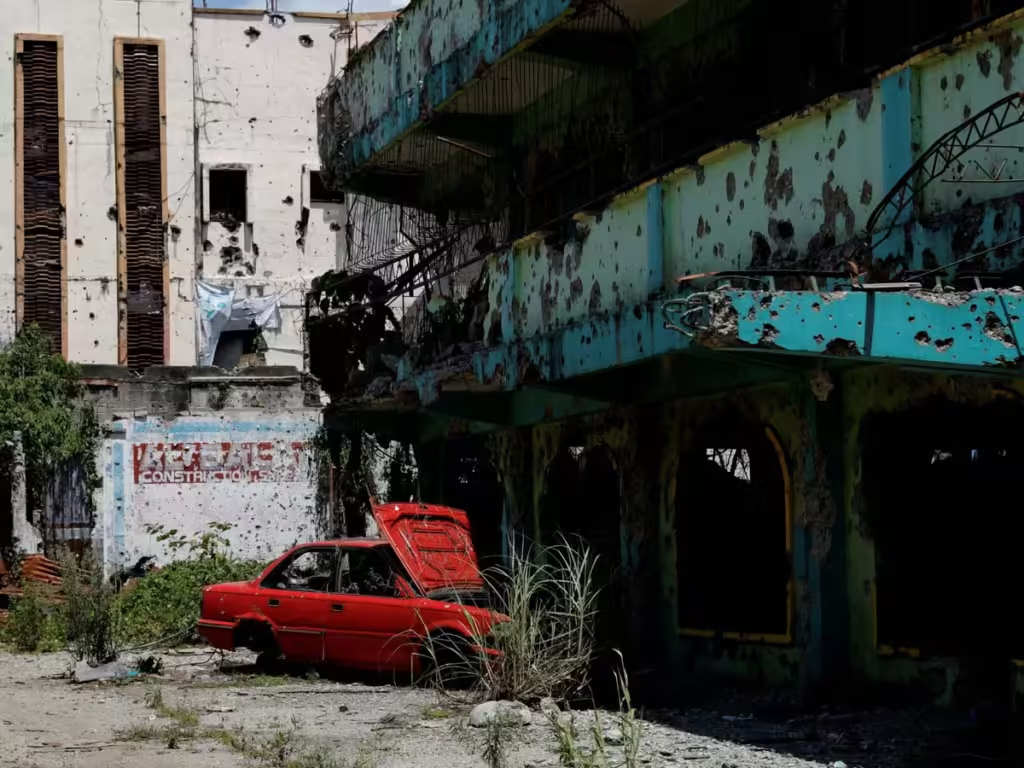Poverty has enormous causes, such as political, socio-economic, cultural, and geographical. In this series, the author aims to present the causes of poverty based on such variables and determine what possible measures to adopt to minimize the effect of the above-mentioned causes. The Borgen Projects identified three major causes of poverty, according to the political sphere: instability, poor governance, and corruption. These causes blame the poor, which is the root problem of poverty, which is in contrast to the findings of the Borgen Projects. Let’s discuss those causes accordingly.
Political Instability
Any forms of violence, uncertainty, volatility, and unrest in the community as well as in society are considered political instability. Thus, the government is responsible for such circumstances. After the 20-year rule of Marcos Sr., the country has enormous political instability. Cory Aquino survived with a total war policy with insurgents as well as seven coup d’états by the military adventurists. Fidel Valdez Ramos’ political scandal occurred when his administration privatized some government facilities. Then he was followed by Joseph Estrada, who took office for more than 2 years because he was ousted due to the Jueteng scandal. The nine-year rule by Gloria Macapagal-Arroyo was brought about by political instability due to the Hello Garci scandal. Meanwhile, PNoy served his six-year term with massive corruption committed by his allies, known as the Dilawan group. On the other hand, the term of Rodrigo Duterte made the country free from drugs due to drug wars, in which the International Criminal Court (ICC) is running him. And now Marcos Jr. is now branded as a drug addict due to the polvoronic video scandal. But PBBM has never answered this accusation against him. These scandals caused the country’s politics to become unstable. Also, the people are losing trust in the head of the state.
Another cause of political instability is external interference in the issue of diplomatic relations in China over the China Sea territorial dispute. Philippine is one of the claimants in the Spratly. There are six country claimants for 100 marine features such as reefs, banks, and cays. These countries are Brunei, China, Malaysia, the Philippines, Taiwan, and Vietnam. China, as one of the major territorial claimants, hastily made its claim by drawing out the nine-dash line. On the other hand, the Philippines, during the PNoy administration, appealed to the International Arbitral Tribunal, a permanent court of arbitration. The court pinned down the issue that China has no historical right to extend its territorial rights in the China Sea. In fact, the dispute is becoming bigger because the Marcos administration is restive in its decision to pursue the claim, even though the International Arbitral Tribunal granted economic rights to the Philippines. It means the country has no territorial rights to pursue its claims; rather, it allows our fishermen to catch fish in our EEZ area. PBBM declared during his third SONA that the West Philippine Sea is ours. His announcement is a psychological act of stubbornness. His foreign policy toward those claimants should be diplomatic and not aggressively declare them enemies. Marcos Jr. is instigating a war with China with the help of the United States, which is not an assurance that the US might not help us in this dispute. In fact, the US never sent a single troop into Ukraine to help them against Russian troops. And this is considered a form of political instability in the Marcos Jr. administration.
Poor Governance & Corruption
Let’s discuss poor governance and corruption. These topics are interrelated because, according to the International Monetary Fund, poor governance offers greater opportunities for corruption. It means that the government must ensure transparency in every government agency and department. The transparency program is a countermeasure in order to prevent the abuse of public officials for their own personal gains. For example, typhoon Carina never hit a single land in the country, but it created havoc for us. In relation to it, where are those funds for climate change worth $457.4 billion pesos? Additionally, more funds were allotted to the flood management program and national disaster risk reduction and management, worth 244.6 billion and 20.5 billion pesos, respectively. Thus, this administration disbursed billions of pesos per day to combat calamities. I call on the attention of both the Senate and the House of Representatives to investigate this matter in order to locate those allotted funds.
Secondly, Transparency International stated that the country ranks 115th out of 180 countries in the corruption perception index. This shows that corruption is still rampant in the form of bribery, diversion of public funds, using the public office for private gain without facing consequences, corruption in the government, red tape, nepotism, conflicts of interest or narrow vested interests, and access to information on public affairs and government activities. Corruption is not the priority of this administration. In fact, it was unmentioned during his SONA on July 22, 2024. Why is the Marcos Jr. administration not interested in discussing corruption? At the onset of his administration, people perceived that he intended to follow in the footsteps of his father. I hope it will not happen, because once it does, Filipinos will rampage against him.
Concluding Statement
Political instability, poor governance, and corruption have a greater effect on our economic growth. Whoever is hired for the members of the economic team, if those variables are rampant, the country will never expect growth. The government should have political will to fight corruption, strong leadership traits, and a relevant transparency program. I suggest that this administration should increase its level of external interference with neighboring nations, particularly adopting an independent foreign policy in regards to the territorial and economic disputes with China. Relying more on the United States is not a guarantee of peace in the region; rather, it creates misunderstanding among claimants. The country should adopt the ASEAN policy to promote peace and development in the region. Second, greater participation and representation of the people in the policy- and decision-making process will enhance strong political stability. Mr. Edwards of Easy Sociology says that an inclusive political system sustains the opportunities for the people to maintain political stability.
In our reading today, the Apostle Paul appeals to those in authority to live peacefully and have quiet lives for godliness and holiness. If Marcos Jr. is allegedly branded as a user of white substances, then he may undergo a drug test to ease the doubts of the Filipinos. Honesty and being transparent are great tools for good governance. If our leader lied to us, the people would never trust him. Arnold H. Glasow says that a good leader takes a little more than his share of the blame and a little less than his share of the credit. Don’t blame the past; rather, read extensively about the past in order to view the new one. Lastly, the accomplishments of the leader should not be credited to him alone. Perhaps a leader should share the credit of those involved.
Prayer
God of the Great Ruler of the Earth, allow us to have a leader who shares his or her vision with us. May the presence of Your Spirit pour into our leader today so that he may think positively about serving the people. Be a servant at all times, and clean up his intention to serve. This is a unison prayer in Your Almighty Name, Amen.
References:
- Easy Sociology by Edwards (2023). Causes of Political Instability. (https://easysociology.com/sociology-of-politics/causes-of-political-instability-an-overview/)
- International Monetary Fund (2023). Governance and Anti-Corruption (https://www.imf.org/en/Topics/governance-and-anti-corruption)
- The Borgen Project, https://borgenproject.org/how-politics-affect-poverty/
- David Brady (2019). Theories of the Causes of Poverty. Annual Review of Sociology Volume 45:155-175, July 2019.
- Transparency International (2023). Philippines (https://www.transparency.org/en/cpi/2023/index/phl)
Prof. Ruel D. Garcia is a faculty member of La Consolacion College Manila as well as the Editor-in-Chief of the International Journal on Culture, History, and Religion (IJCHR.paschr.ph).




